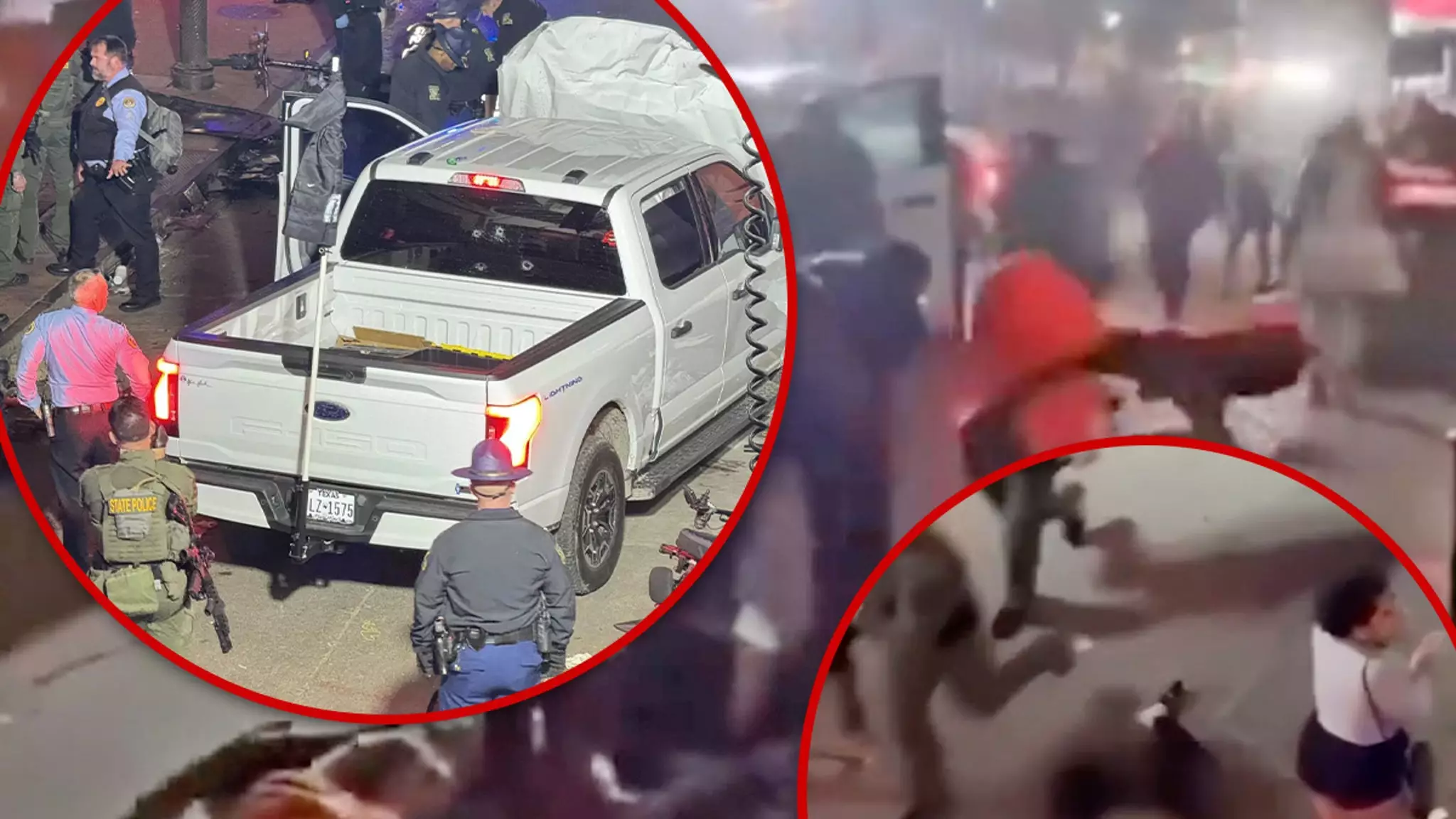In the early hours of January 1, 2024, New Orleans was shaken by a tragic incident that left ten individuals dead and over thirty injured. As citizens welcomed the New Year, a man driving a pickup truck careened into a crowd of revelers on the bustling streets of Canal and Bourbon, moments after midnight. Witnesses reported the driver was speeding and weaving around barricades set up to manage the celebratory activities, a clear indication of a premeditated assault. The chilling episode further deteriorated as the driver, allegedly clad in body armor, exited the vehicle brandishing an assault weapon and opened fire, leading to chaos and widespread panic among attendees.
This violent act was immediately classified as a terrorist attack by New Orleans’ Mayor LaToya Cantrell, who condemned the events as tragically calculated and aimed at harming as many individuals as possible. Authorities acted promptly, resulting in a confrontation where law enforcement fatally shot the assailant. The harrowing circumstances surrounding the attack have instigated a multifaceted investigation involving local police and federal agencies, particularly the FBI, who are working diligently to piece together the attacker’s background and motives.
In the aftermath, local law enforcement agencies have heightened security measures in anticipation of the Sugar Bowl, set to take place in the city’s Superdome. The Atlanta Police Department has escalated its security protocol in the Downtown and Midtown regions, openly acknowledging the public’s concerns and emphasizing the commitment to ensuring safety. Community leaders and officials have reiterated their solidarity with New Orleans, with thoughts and prayers extended towards the victims and their families—a comforting note amidst a distressing reality.
Sugar Bowl CEO Jeff Hundley expressed his devastation over the situation, prompting discussions with local, state, and federal officials to enhance safety protocols for upcoming events. This collective response underscores the communal resilience that often arises in the face of adversity, where vigilance becomes a priority to safeguard citizens and visitors alike.
Federal authorities have revealed that the truck employed in the assailant’s attack was originally brought through Eagle Pass, Texas, raising questions regarding border security and vehicle tracking. Initial findings indicate that while the truck crossed the border in November, the individual responsible for its transit is not believed to be the attacker. This complicates the investigation further, as authorities scramble to determine the assailant’s connections and background.
The fear surrounding public events has not only sparked a critical examination of security protocols but also increased public anxiety over potential future threats. Such incidents often foster a culture of apprehension, where residents and visitors must grapple with the unpredictable nature of public safety. Yet, in a counter-narrative to fear, many people rally to demonstrate resilience; they refuse to let terror dictate the manner in which they celebrate life and community.
As the dust begins to settle from this egregious act of violence, it becomes increasingly clear that communities must remain vigilant. The Sugar Bowl, one of the city’s key sporting events, is a focal point for unity among residents and visitors. Enhanced security measures will play a pivotal role in ensuring that this event, and others, proceed safely.
Evolving security protocols, community engagement, and dialogue between law enforcement and the public will be crucial in reclaiming a sense of normalcy and safety. The aftermath of such an attack often witnesses communities drawing together, not only in remembrance of the victims but also in fortifying their resolve against future acts of violence. It is incumbent upon each member of the community to stay informed, remain alert, and support one another, thereby transforming fear into strength and resilience in the face of adversity.
While many questions remain unanswered in the wake of this tragedy, one truth persists: communities thrive on solidarity. Together, residents and visitors of New Orleans can work towards ensuring that perhaps the most potent response to such acts of terror is not fear, but a renewed commitment to cherish life, joy, and togetherness.

Leave a Reply